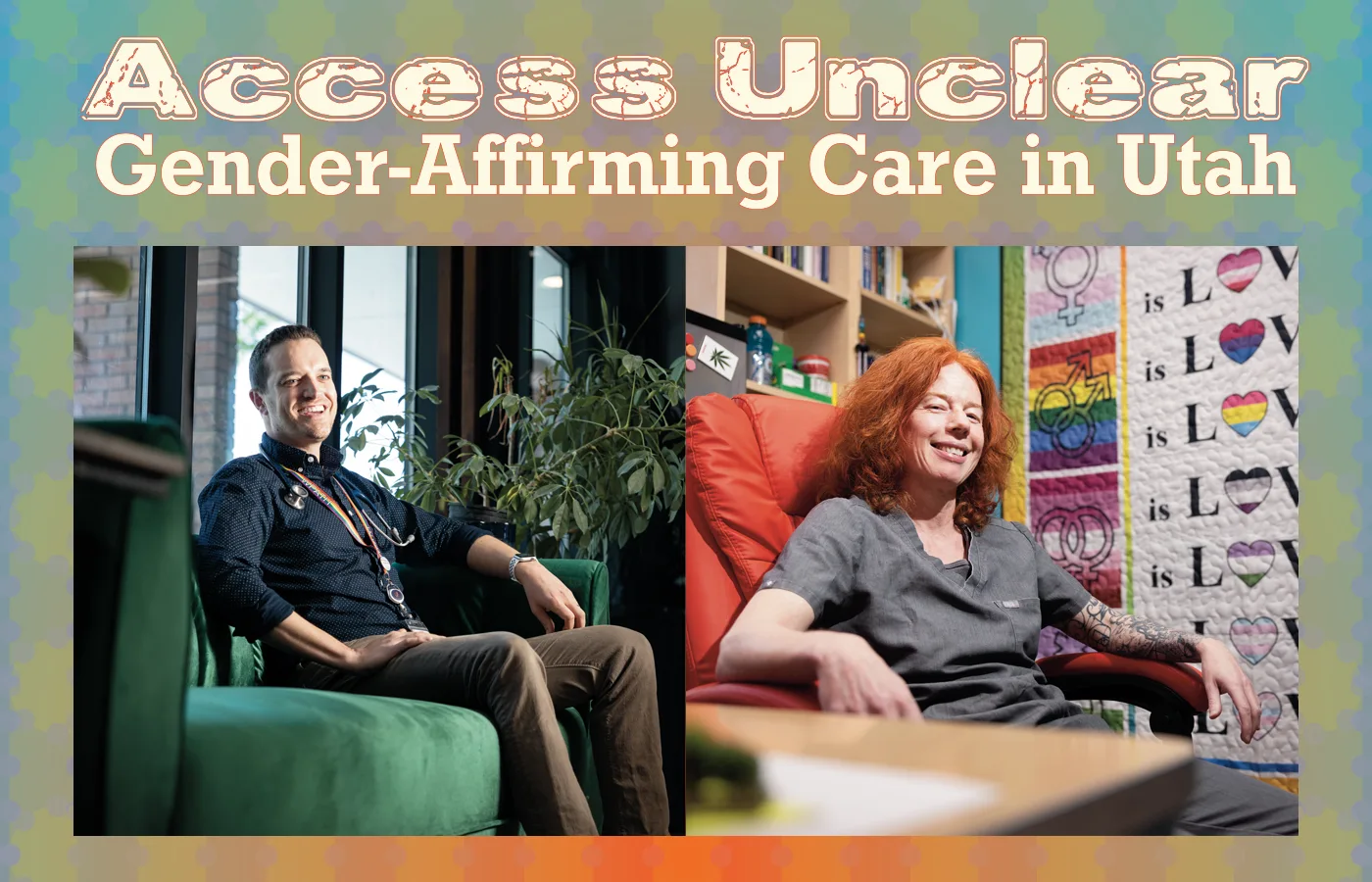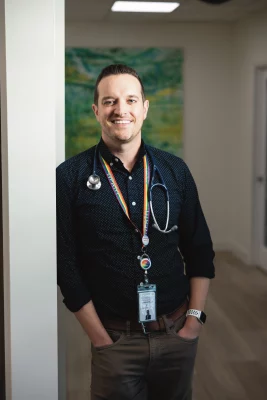
Access Unclear: Gender-Affirming Care in Utah
Community
As Utah enters Pride month during yet another election year, healthcare has become an important issue in the LGBTQ+ community, both in the Beehive State and nationwide. The Salt Lake Tribune found that an estimated 2.8% of Utah adults identify as gay or lesbian, 6.1% as bisexual and 1% as transgender. However, even as a nationwide survey found that Utah ranked seventh-highest in the nation in healthcare, many members of the LGBTQ+ population continue to face barriers accessing gender-affirming care.

A National Center for Transgender Equality report found that 34% of respondents who saw a health care provider in the past year reported having at least one negative experience related to being transgender, including being refused treatment, verbally harassed, physically or sexually assaulted or having to teach the provider about transgender people in order to get appropriate care.
“Trans people are not mentally unwell, but [when you’re] living in a society where everyone says there’s something wrong with you and you’re treated differently because of it, that’s where depression, anxiety and PTSD come in.”
Two local healthcare providers who specialize in LGBTQ+ healthcare (with a specific emphasis on the trans community) discussed some of the current challenges that Utah patients and providers face when it comes to accessing and providing care as well as addressed common misconceptions about gender-affirming care.
Dr. Rixt Luikenaar, board-certified OB/GYN, transgender health expert and founder of Rebirth Health Center, says that one of the biggest logistical challenges facing many patients is navigating the complexities of health insurance, explaining that obtaining health insurance is an important first step in receiving care.
Another common misconception about transgender patients that providers hope to dispel is that transitioning is quick and only physical. “It’s not transactional at all,” explains Dr. Matt Bryan, a primary care physician at UAF Legacy Health. Both Dr. Bryan and Dr. Luikenaar stress the importance of holistic health, which includes not only physical health, but also mental and emotional health.

Dr. Luikenaar also practices trauma-informed care, in which providers take the patient’s medical and social history into account when delivering services—especially given that some services involve intimate physical examinations. Dr. Luikenaar explains that many patients suffer from conditions such as depression, anxiety, ADHD and PTSD. Patients on the autism spectrum also benefit from a trauma-informed care approach.
Dr. Bryan dispels another misconception, stating that “mental health, while it goes hand in hand with trans health, it’s not the cause [of being transgender]—trans people are not mentally unwell, but [when you’re] living in a society where everyone says there’s something wrong with you and you’re treated differently because of it, that’s where depression, anxiety and PTSD come in.”
“The studies show that the regret rate is less than one or two percent when it comes to hormone [replacement therapy] and even less when it comes to surgeries.”
Transitioning is not quick either. While Rebirth Health Center does offer some cosmetic procedures (including laser hair removal with Lidocaine), Dr. Luikenaar cites statistics that show that while about 95% of transgender men opt for breast reduction surgery, only about 25% of transgender women opt for top surgery and only about 10% opt for bottom surgery.
This means that transitioning relies heavily on hormones and social adjustment. “The process for hormone treatment takes years,” Dr. Luikenaar explains. They describe how it takes time not just for an individual’s body to physically change, but also for them to psychologically begin to adopt a new identity while existing in the same world.
Another myth that Dr. Luikenaar dispels is that transgender people who seek gender-affirming care regret their transition, saying that “the studies show that the regret rate is less than one or two percent when it comes to hormone [replacement therapy] and even less when it comes to surgeries.”
The idea that patients, especially young ones, will regret their choice to pursue gender-affirming medical care is one that currently presents itself as the biggest challenge for Dr. Luikenaar and other providers. In 2023, the Utah Senate passed SB-16, a bill that essentially prohibits gender-affirming care for transgender youth, meaning that minors can’t get gender reassignment surgery or hormone treatment, including puberty blockers, if they haven’t already been diagnosed with gender dysphoria. While there is a great deal of gray area surrounding the bill’s implementation, Dr. Luikenaar believes that the bill takes away an individual’s right to bodily autonomy, leaving the decision to the government rather than the individual and their families.
For more information about treatment options and resources, check out Rebirth Health Center at rebirthhealthcenter.com and UAF Legacy Health at uafhealth.org.
Read more from the LGBTQ+ Pride Issue:
Mosaics: Provo’s Only Queer Bookstore
The Bold and Beautiful Matrons of Mayhem